
For many couples in Texas, the prospect of divorce can be daunting, conjuring images of lengthy courtroom battles and escalating legal fees. However, there's an alternative route that can simplify the process: an uncontested divorce. If you and your spouse agree on all major issues, an uncontested divorce can be a smoother, quicker, and more cost-effective solution. In this blog post, we'll explore what an uncontested divorce entails under Texas law and how you can navigate this process. What is an Uncontested Divorce in Texas? An uncontested divorce in Texas, often referred to as an "agreed divorce," is where both…Read More

Estate planning is not a one-and-done task. Life is dynamic, and your estate plan should evolve as your circumstances change. As a Texas-based estate planning attorney, I've seen numerous cases where outdated estate plans caused unnecessary complications for families during challenging times. Understanding when and why to update your estate plan is crucial for ensuring that your wishes are honored and your loved ones are protected. Understanding the Importance of Regular Updates First and foremost, an estate plan is a reflection of your current circumstances, intentions, and legal environment. Any significant change in these areas can render your existing estate…Read More

As an experienced family law attorney in Texas, I frequently encounter clients who are curious about the concept of legal separation as an alternative to divorce. The question often arises: "Can I get a legal separation instead of a divorce in Texas?" Understanding the nuances of Texas family law is crucial in answering this question. In this post, we'll explore the legal landscape of separation and divorce in Texas to help you make informed decisions. Legal Separation in Texas: A Myth? Unlike some states, Texas does not recognize legal separation. This is often surprising to many of my clients. In…Read More

In the landscape of modern family structures, blended families are increasingly common. These families, where one or both partners have children from prior relationships, encounter distinct challenges in estate planning. This is particularly acute in the absence of a will, as state intestacy laws may not reflect the nuanced dynamics of these families. This article explores a specific scenario in Texas where a spouse with stepchildren dies intestate (without a will), focusing on the implications for the ownership of the home, a common asset of concern in such situations. The Scenario: Intestate Death in a Blended Family in Texas Consider…Read More
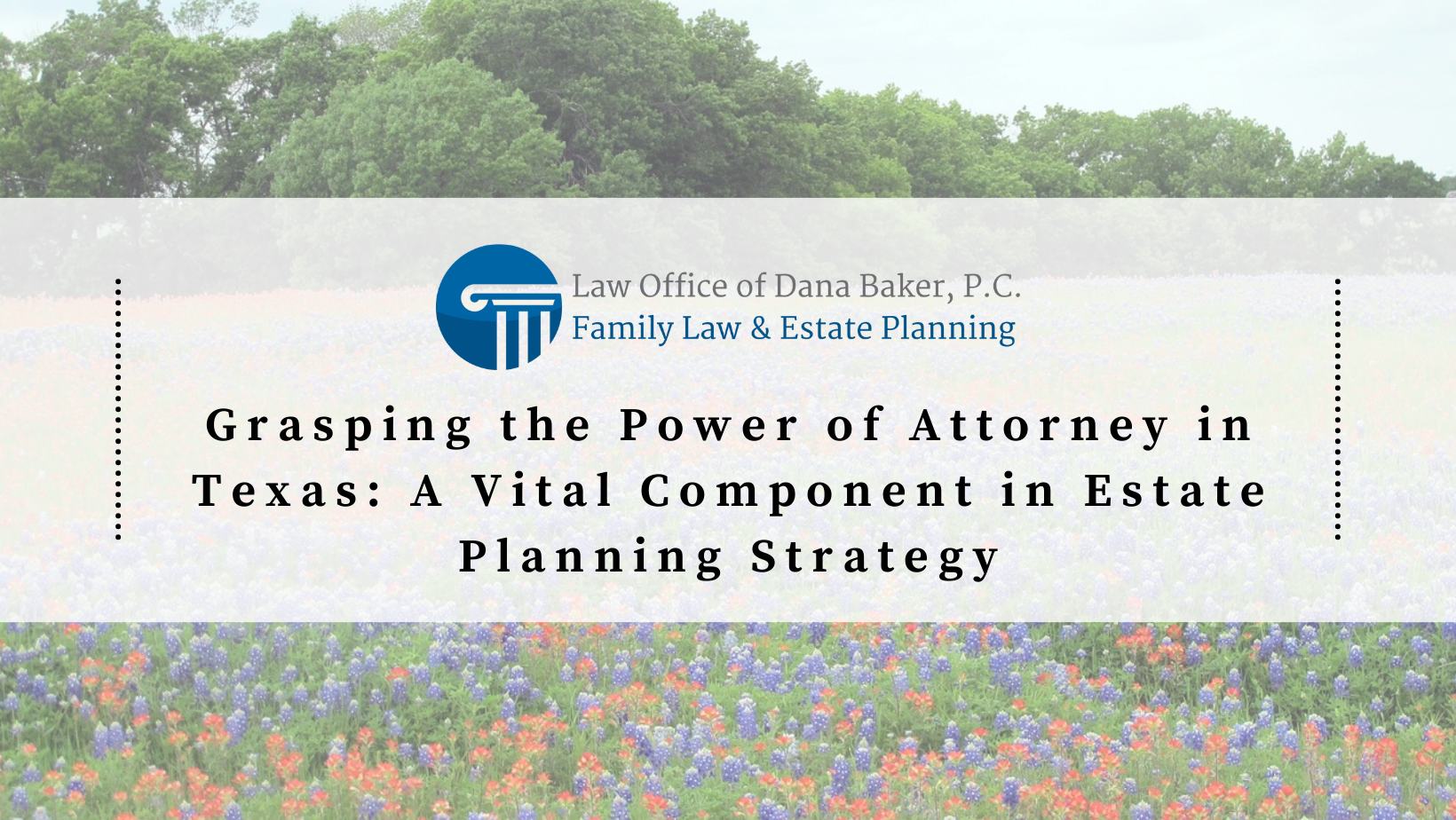
Estate planning is a crucial process that often involves a complex web of decisions and legal documentation. One vital component of this process is the Power of Attorney (POA). As a Texas attorney specializing in estate planning, I frequently encounter questions from clients about what a POA is and why it's important. In this post, we'll delve into the intricacies of Power of Attorney under Texas law and why it should be a part of your estate planning toolkit. What is a Power of Attorney? A Power of Attorney is a legal document that allows you (the "principal") to designate…Read More
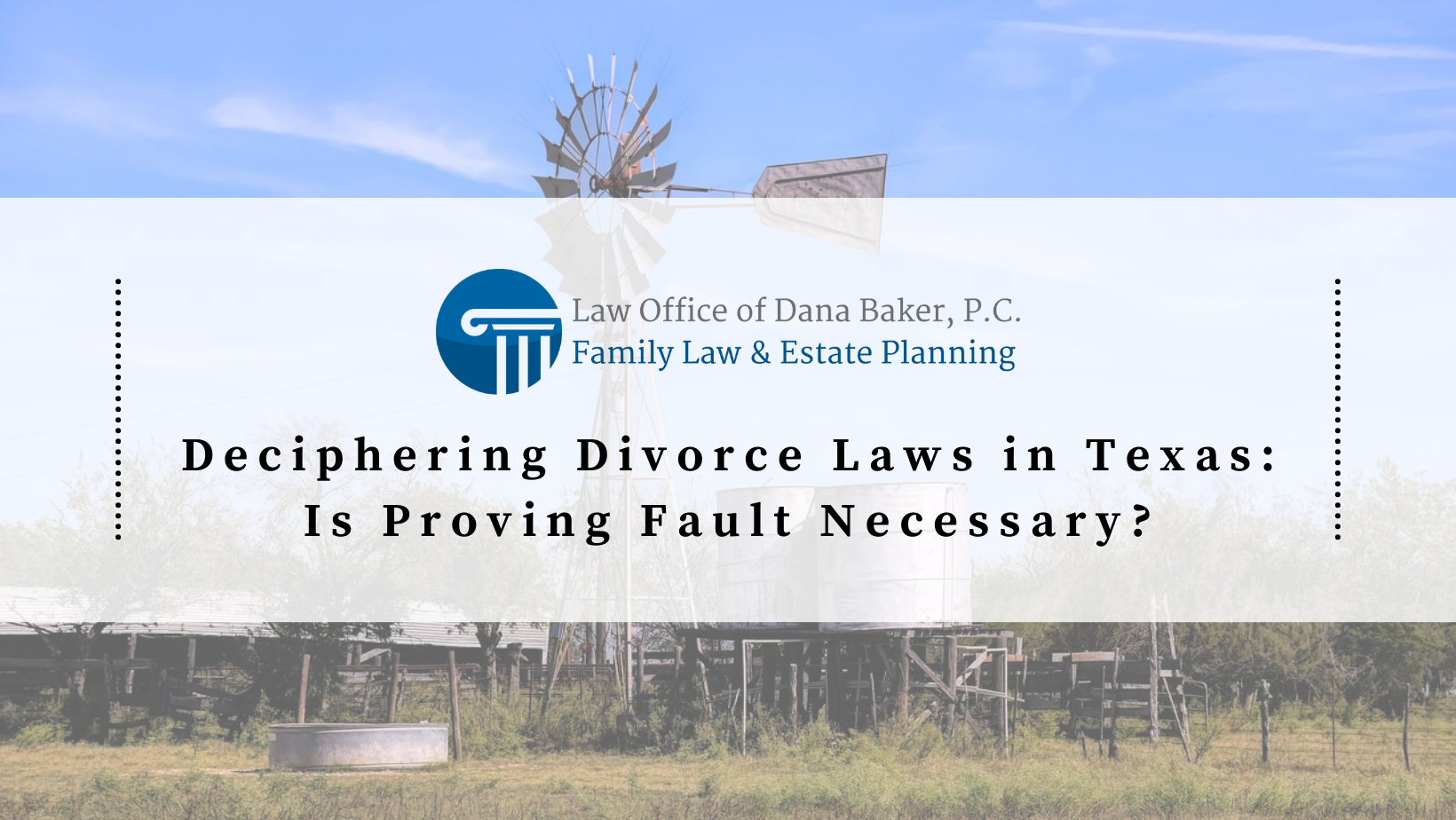
Navigating the complexities of divorce law in Texas can be daunting, particularly when it comes to understanding the grounds for divorce. One question that frequently arises in my practice as a Texas family law attorney is whether you need to prove fault to obtain a divorce. In this blog post, we'll delve into the grounds for divorce in Texas, exploring the implications of fault and no-fault divorce. What Are the Grounds for Divorce in Texas? Texas law recognizes both fault and no-fault grounds for divorce. This gives spouses the flexibility to choose the basis for their divorce depending on their…Read More
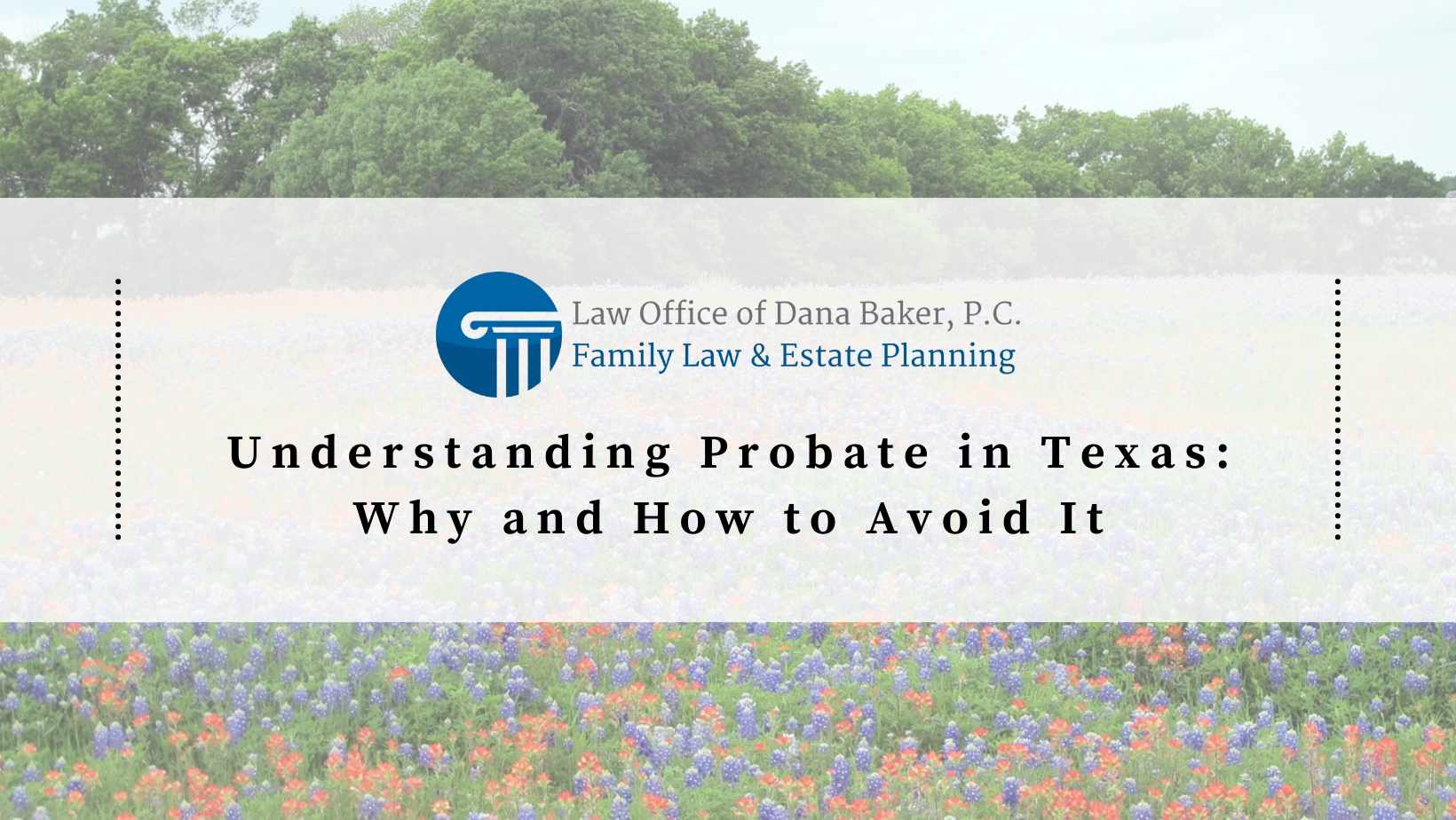
For many Texas residents navigating the world of estate planning, the term 'probate' often surfaces as a central concern. But what is probate, and why do so many individuals aim to avoid it? Here, we'll dive deep into the nuances of Texas probate law and discuss strategies to sidestep this process. What is Probate? Probate is a legal process wherein a deceased individual's estate is settled and their assets are distributed to beneficiaries. In Texas, as in other states, the probate process involves: Proving in court that a deceased person's will is valid (if there is one). Identifying and inventorying…Read More

When couples with children decide to part ways, determining child custody becomes one of the most significant and often contentious issues they face. In Texas, the legal term for child custody is "conservatorship." Understanding how Texas law views conservatorship and the difference between joint and sole custody is crucial for parents navigating this process. Conservatorship in Texas: The Basics In Texas, rather than using the terms "custody" or "primary custody," the law uses the terms "conservatorship" and "possession and access." These terms refer to the legal rights, duties, privileges, and powers parents have concerning their children. Joint Managing Conservatorship (JMC)…Read More
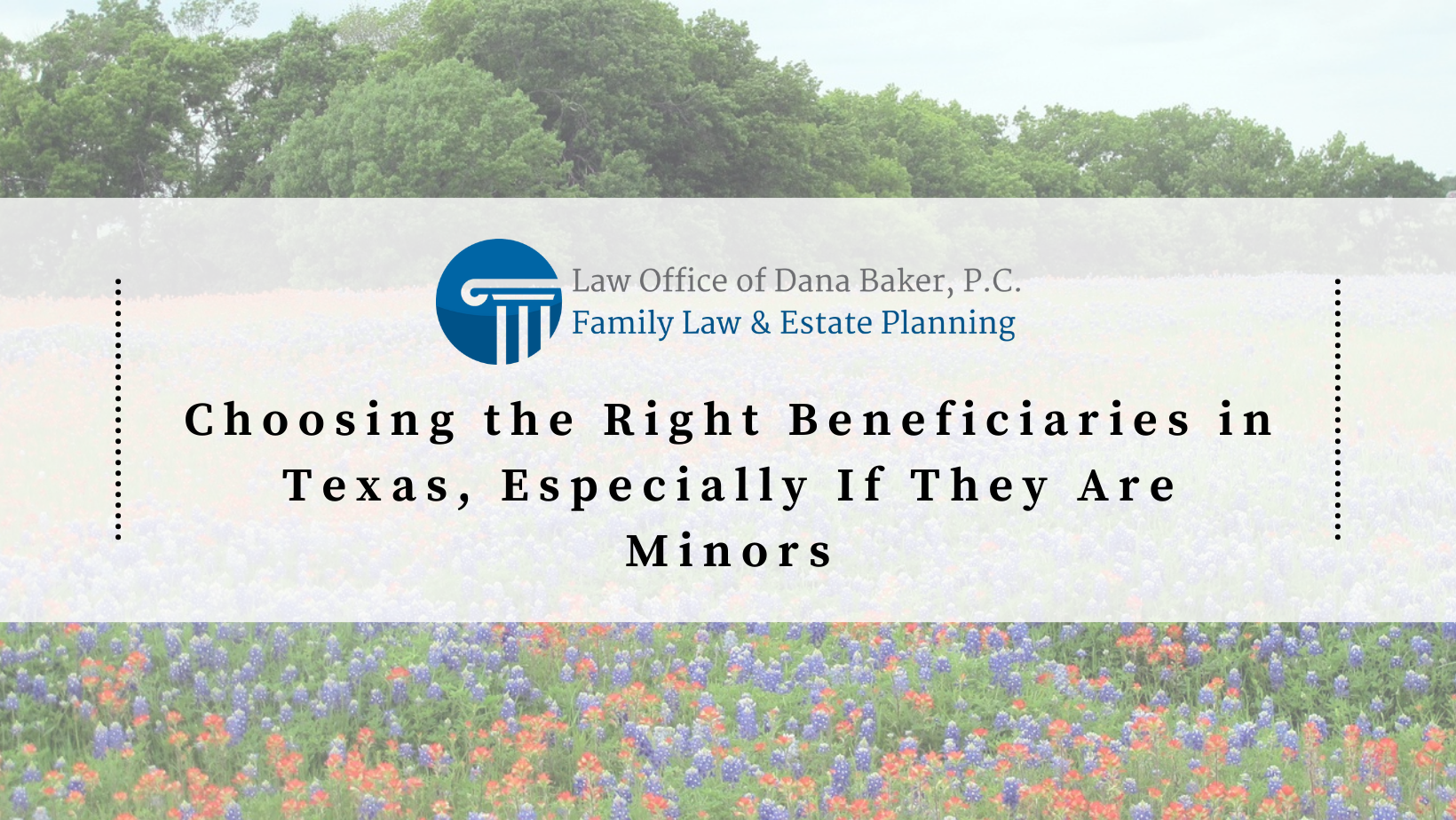
Estate planning can be a daunting task, but one of the most pivotal decisions you'll make is selecting your beneficiaries. This decision determines who will receive your assets after your passing. In Texas, there are unique considerations, especially when beneficiaries are minors. This blog post aims to shed light on this aspect of estate planning in the Lone Star State. What is a Beneficiary? In the simplest terms, a beneficiary is an individual or entity you designate to receive assets from your will, trust, or other estate planning instruments. This can include relatives, friends, charitable organizations, trusts, and more. The…Read More
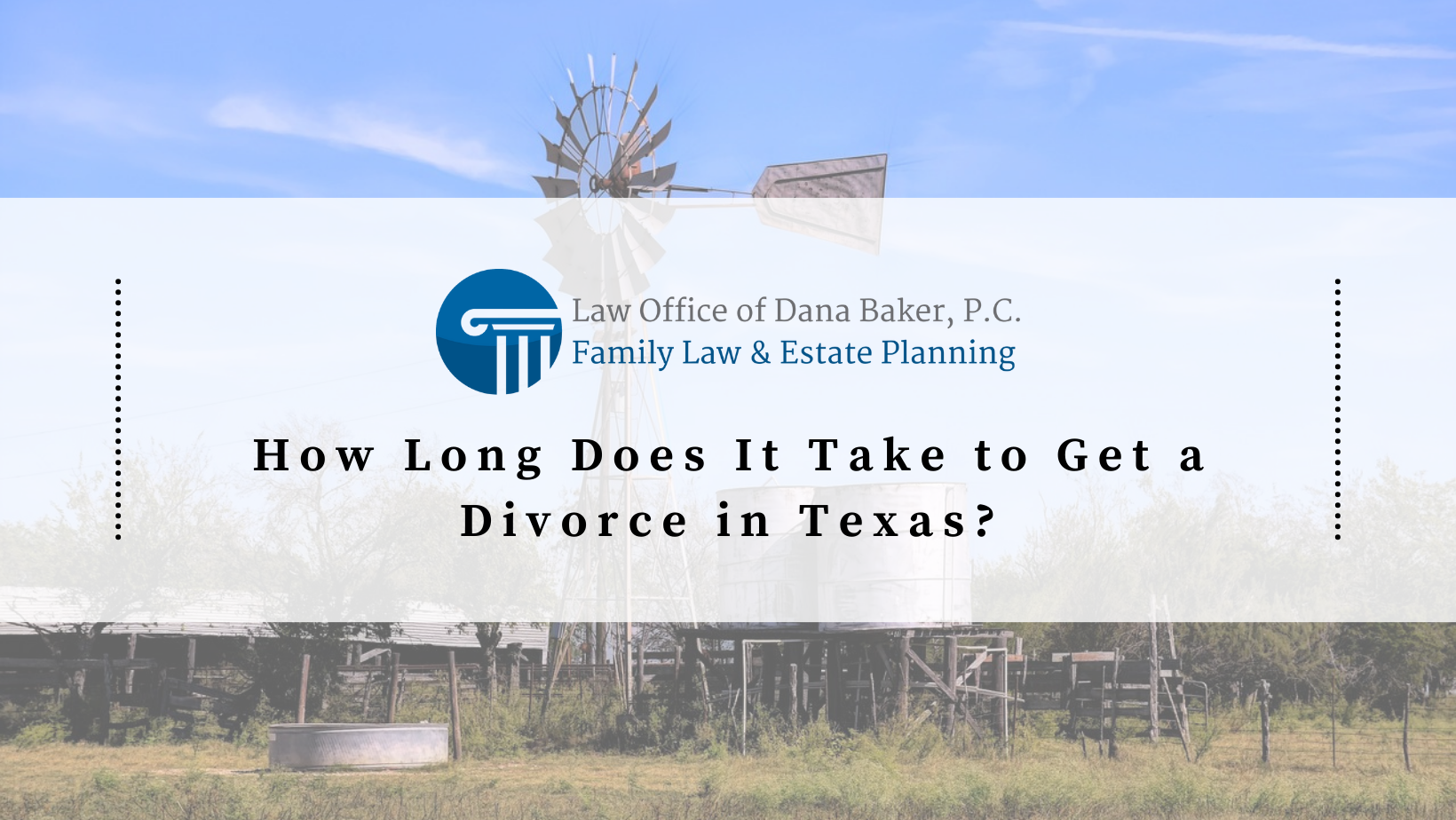
Navigating the complexities of divorce can be emotionally and logistically challenging. One of the primary concerns for many individuals is understanding the timeframe involved. If you're considering or are in the midst of a divorce in Texas, you might be wondering: How long will it take to finalize the divorce? Let's delve into the Texas family law to answer this question. The 60-Day Waiting Period First and foremost, Texas law mandates a 60-day waiting period from the date the divorce petition is filed until a court can finalize the divorce. This means that, in the most straightforward cases, where both…Read More

